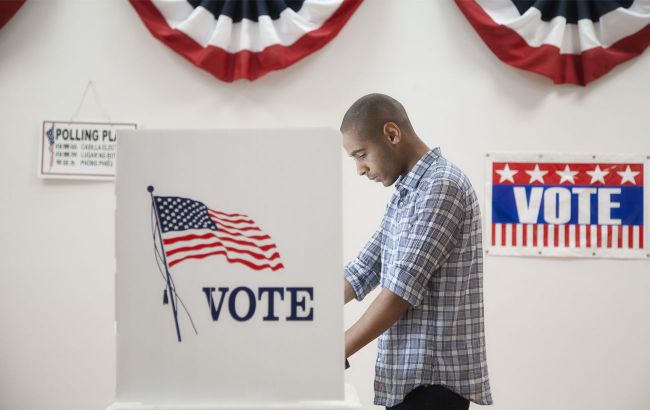How bookmakers accept bets on Trump's or Harris's victory in US election
 Voting in the US election (photo: Getty Images)
Voting in the US election (photo: Getty Images)
Over the past month, Donald Trump has been significantly ahead of Kamala Harris in the US presidential election betting. However, Republican supporters are suspected of manipulation.
RBC-Ukraine explains how betting on the US election works and whether it is worth taking into account.
What you can bet on
Bookmakers accept bets on almost anything, from predictions on the outcome of sports matches to the likelihood of a full-scale conflict between Israel and Iran.
In the context of the US election, bets are placed not only on the victory of Harris or Trump but also on more specific indicators, such as who will win in a particular state. It is even possible to bet on the level of voter turnout.
How bookmakers work
Unlike sociological surveys, bookmakers' bets are not rational and are based more on the internal psychological feelings of players.
At the same time, it is possible that players with access to classified information can make a more objective judgment about the chances of candidates. This includes detailed opinion polls, results of focus groups on candidates, and other sensitive information.
On the other hand, betting companies can overestimate or underestimate the chances of candidates for political reasons.
How odds are calculated
In betting, the key concept is the coefficient. It is related to the probability that the event on which you placed a bet will occur. The higher the odds, the higher the payout to the player. The way it works can be explained using the example of a boxing match between two unequal boxers - a champion and a novice.
The indicators are evaluated as a percentage to make the total number 100%. Take the number 100 and divide it by the number of probability percentages. If the champion's victory is estimated at 60%, then 100 is divided by 60, and the coefficient will be 1.67. If the novice's chances of winning are estimated at 30%, the odds are 100:30 = 3,33.
The probability is determined - to a large extent, but not entirely - by the number of bets on the candidates. Betting companies also include their margin in the odds, usually at the level of 5-7%, to be able to earn money. Therefore, the actual odds may differ slightly from the published ones.
Odds on candidates' victory
As of October 30, according to the RealClearPolitics portal, bets at eight bookmakers indicate that Trump has a better chance of winning than Harris - on average, 64% vs. 35.1%. The odds of specific companies vary within 4% of these figures.
Polymarket case and possible betting manipulation
There is an assumption in the American media that betting companies' rates can be used as a tool for election campaigning. In particular, one of the key betting platforms Polymarket experienced a sharp shift in bets on Trump in October. As the company later confirmed, this was because four accounts almost simultaneously bet $28 million on Trump's victory.
A spokesperson for the company told CNBC that all four accounts were controlled by a single trader, described as a French citizen with extensive experience in trading and financial services. The trader's accounts were funded from the centralized crypto exchange Kraken.
Polymarket insists that it has found no evidence that the trader is trying to change Trump's chances in the political betting market.
At the same time, this story illustrates how even one person, intentionally or unintentionally, can formally change the odds of betting on US presidential candidates.
Earlier, RBC-Ukraine wrote why US elections are always held on the Tuesday after the first Monday of November.
Also, read how the conflict in the Middle East plays a role in the presidential race.
Sources: Le Monde, CNBC, Axios, Real Clear Politics.

